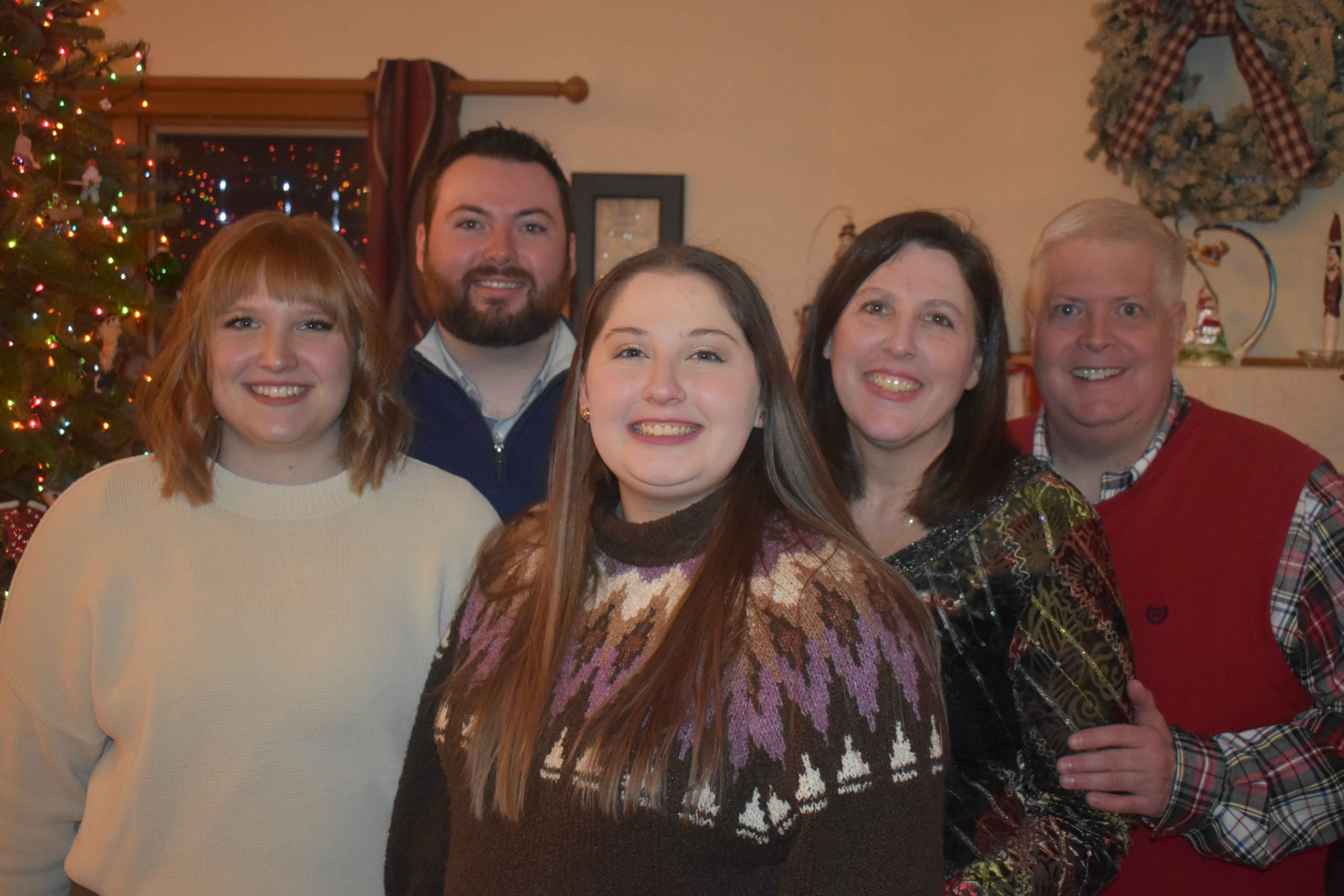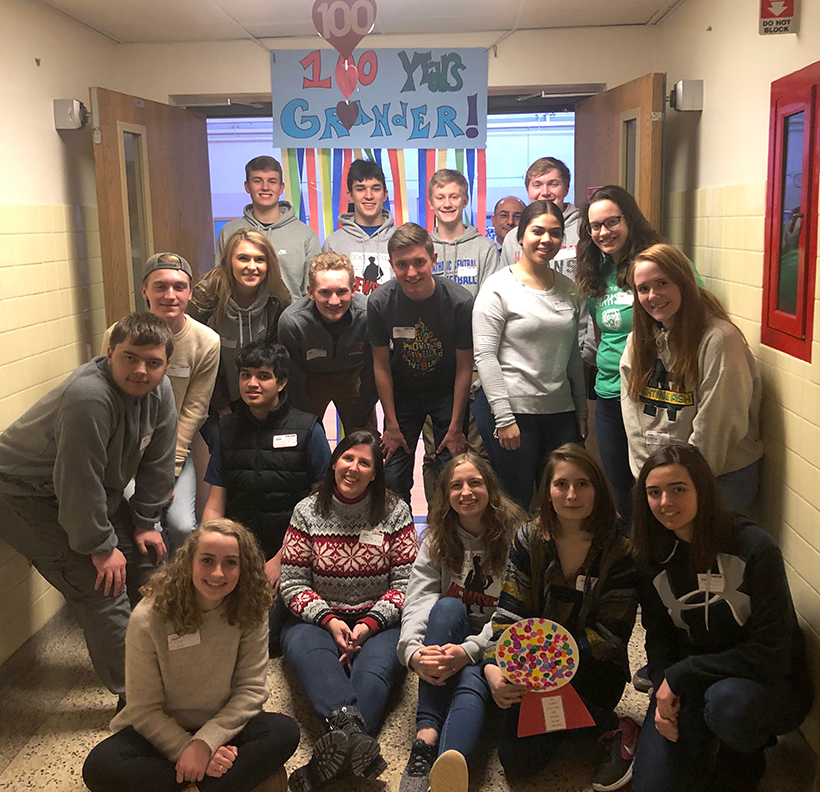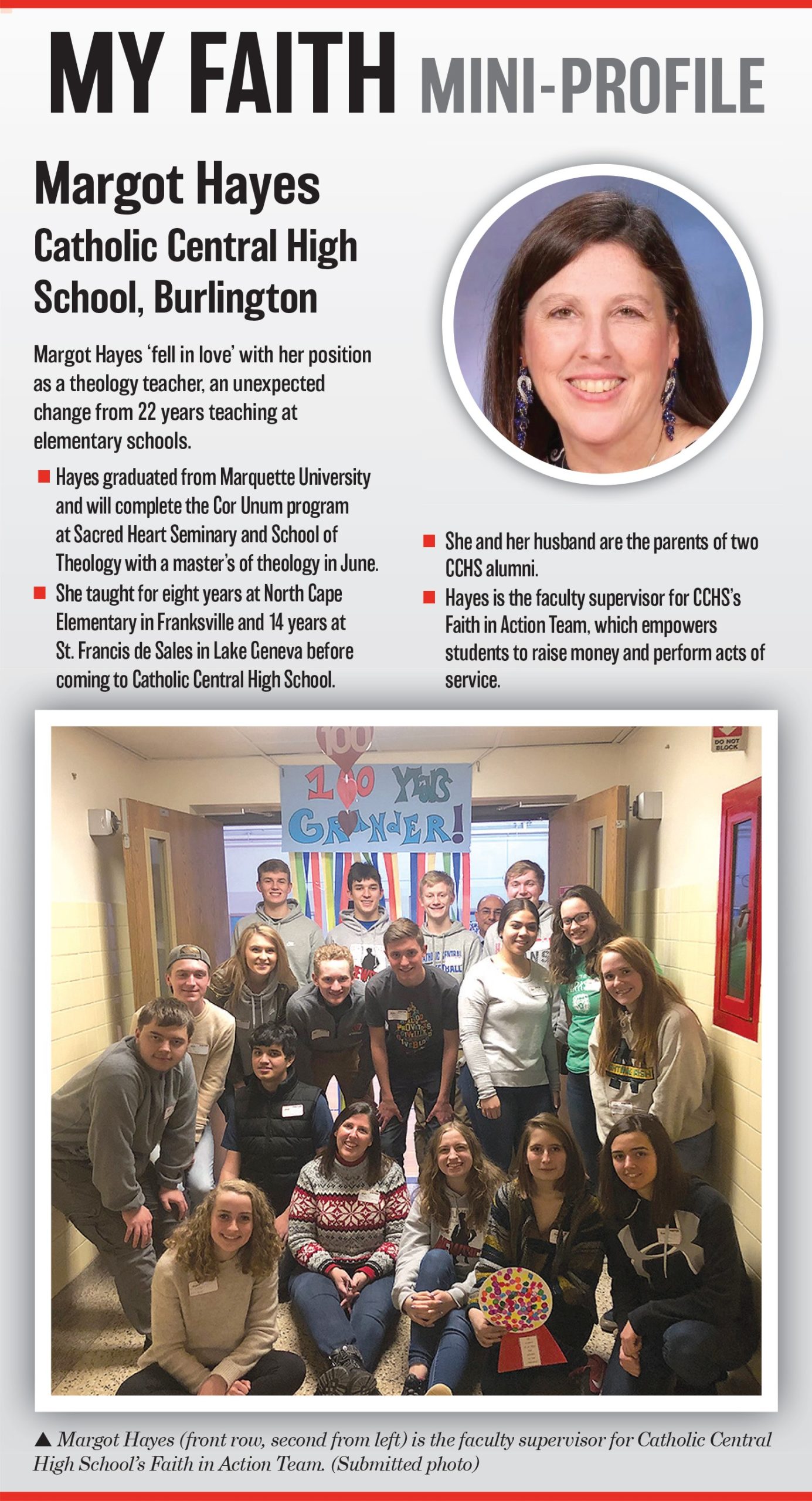Living Our Witness
How is it that you came to transition from young elementary school students to teaching high schoolers?
The principal at Catholic Central High School in Burlington at the time was a former colleague. He called me up and said, “Do you know anybody looking for a theology job?” I said, “I’m really sorry; I can’t think of anyone off the top of my head,” and he replied, “Look in the mirror. You are a fantastic teacher. You are super strong in your faith, and you’ll figure out the rest.”
Was that scary?
I looked at my husband and asked, “Should I really be doing this?” And he said, “Hey, leap of faith, right?” So I said yes. My son had graduated from Catholic Central, but my daughter was going to be a sophomore there. I had always been in school with her because my kids went through St. Francis. I had taught them when they were there in third grade, so it wasn’t a new thing for me to teach at a school where my kids were.
What happened when you got there?
I just absolutely fell in love. It was hard work and a long learning process, but the kids and the staff responded well to me. I couldn’t imagine doing anything else.
What is one thing you love about CCHS?
We’re constantly looking to get our kids into the community with our service programs. We want the kids to have all these different experiences. We want them to get out there and see what’s in the world. Seeing them out there with people is one of my favorite experiences.
How do you do that?
(One way is with) our retreats. Our junior retreat is our social justice retreat. We get out into the world junior year. Recently, we were at the Notre Dame in Milwaukee schools, working in the classrooms with the kids and seeing our bilingual kids being able to help translate with the kids there. And it was just a beautiful thing. It always is. The next day of the retreat, we sorted clothes and checked sizes, then we went to Feeding America.
Do you think these experiences open their eyes?
Yes. I talked with our Spanish teacher because she goes on these retreats with me. She said that our kids’ experience at Notre Dame in Milwaukee was so important. Most of our kids are these white, middle-class students who have never experienced being a minority before. Being in that school, they were the minority. It was good for them to have those experiences and see what the world is really like. That’s always our goal. That’s always what we want to do and what we strive for.
How did the Faith In Action Team get started?
All good ideas are stolen. When I taught at St. Francis de Sales in Lake Geneva, the eighth-grade teacher, Kim Vanderwerff, ran a group called Mary’s FIAT. When I arrived at Catholic Central seven years ago, I suggested that we combine two of the service organizations and rename them FIAT (Faith in Action Team).
Do you have any advice for the parents of teens who are trying to keep their kids Catholic?
When you baptize your child, that was your choice for your children, and you led them down the path as best you could. But by the time we get to Confirmation, man, it’s got to be their choice. Let’s do a lot of prayer for them and hope that we can still show them the best (our faith has to offer). And I think it’s OK if they live in your house to say, “Hey, our family goes to church on Sunday. You’re coming with us.” If they’re not exposed to it, then they’re gonna lose it anyway, right?
What do we do when we get them in the pews?
You can make all the experiences positive and make them wonderful. I always say to the kids, “I think if you understood more about what was actually happening at Mass, you’d appreciate it a little more.” And I do my darnedest to ask: “Do you know why we do that? Let’s talk about why we do that. Here’s what we’re actually doing. Here’s what we’re actually saying. Here’s what this actually means.”
How do we explain faith to them?
When I teach discipleship, we go through all these qualities of faith. In fact, we’re just doing it now in class, and one of the gifts of faith is that God gives you the gift of faith, but your response to it has to be freely given. The kids understand you can’t force faith. You can’t force people to believe. Kids have to make their own choices.
So how do we help them choose for themselves?
My seniors and juniors, we talk about this so much. They feel like, “Yeah, I’m forced to do this and I’m forced to do that,” and when we force them to do things, they’re not going to like it, and they’re going to push away from it. So let’s start encouraging and showing them the good things about our faith. Let’s start bringing them to things and inviting them to things we think they might enjoy. They may get something out of it, and they may want to come back.



